Chadwick Boseman COLON CANCER SIGNS AND SYMPTOMS
#ChadwickBoseman #ColonCancer #SignsandSymptoms
Chadwick Boseman COLON CANCER SIGNS AND SYMPTOMS
Save a life and share this video 💕💕
The tragic death of Chadwick Boseman has many people grieving and in disbelief. Boseman was diagnosed with stage III colon cancer in 2016, which eventually progressed to a stage IV before 2020. He had not spoken publicly about his cancer diagnosis. During treatment (multiple surgeries and chemotherapy), he continued to work and completed filming for several films. Boseman died at his home of complications related to colon cancer on August 28, 2020.
His death has inspired me to make this video as a tribute as well as a way to educate the public so that another young life need not be lost.
Chadwick Boseman was a hero for minorities and worked hard to bring awareness to social justice issues. He was an amazing actor but more importantly a beautiful human being. At only 43 years old he passed away due to colon cancer. Unfortunately black male Americans are at a disproportionately higher risk of dying from colon cancer. Signs and symptoms of colon cancer include:
Colorectal cancer begins when healthy cells in the lining of the colon or rectum change and grow out of control, forming a mass called a tumor. A tumor can be cancerous or benign. A cancerous tumor is malignant, meaning it can grow and spread to other parts of the body. A benign tumor means the tumor can grow but will not spread.
This year, an estimated 147,950 adults in the United States will be diagnosed with colorectal cancer.
Risk factors for colon cancer include:
🚨Age. The risk of colorectal cancer increases as people get older. Colorectal cancer can occur in young adults and teenagers, but the majority of colorectal cancers occur in people older than 50.
🚨 Meanwhile, the incidence rate increased by nearly 2% per year in adults younger than 50. The increase is due in large part to rising numbers of rectal cancer. About 11% of all colorectal diagnoses are in people under age 50. The reason for this rise in younger adults is not well known and is an active area of research.
🚨Gender. Men have a slightly higher risk of developing colorectal cancer than women.
🚨 Family history of colorectal cancer. Colorectal cancer may run in the family. This is especially true when family members are diagnosed with colorectal cancer before age 60. If a person has a family history of colorectal cancer, his or her risk of developing the disease is nearly double. The risk further increases if other close relatives have also developed colorectal cancer or if a first-degree relative was diagnosed at a younger age.
It is important to talk to your family members about your family’s history of colorectal cancer.
🚨 Rare inherited conditions. Members of families with certain uncommon inherited conditions also have a higher risk of colorectal cancer.
🚨 Inflammatory bowel disease (IBD). People with IBD, such as ulcerative colitis or Crohn’s disease, may develop chronic inflammation of the large intestine.
🚨 Adenomatous polyps Some types of polyps called adenomas can develop into colorectal cancer over time.
🚨Personal history of certain types of cancer. Women who have had ovarian cancer or uterine cancer are more likely to develop colorectal cancer.
🚨Race. Black people have the highest rates of non-hereditary, colorectal cancer in the United States. Colorectal cancer is also a leading cause of cancer-related death among black people. The American College of Gastroenterology suggests that black people begin screening with colonoscopies at age 45. Earlier screening may find changes in the colon at a point when they are more easily treated.
🚨Physical inactivity and obesity.
🚨Nutrition. Current research consistently links eating more red meat and processed meat to a higher risk of the disease. Other dietary factors have also been looked at to see if they affect the risk of developing colorectal cancer.
🚨 Smoking. Recent studies have shown that smokers are more likely to die from colorectal cancer than nonsmokers.
Follow me on IG: Nursing with Professor B
Join my FB group: https://mmini.me/NursingwithProfessorB
EMAIL: NURSINGWITHPROFESSORB@GMAIL.COM
Lighting: LimoStudio Photography Photo Portrait Studio 660W Day Light Umbrella Continuous Lighting Kit, LMS103
https://amzn.to/3lElIbV
LEGAL DISCLAIMER:
These videos are intended for entertainment purposes only. Although we strive for 100% accuracy in all of our videos, errors may occur. Never treat a patient or make a nursing or medical decision based on the information provided on this channel or in our videos. Never practice nursing or medicine unless you have a proper license to do so.
Links included in this description might be affiliate links. If you purchase a product or service with the links that I provide I may receive a small commission. There is no additional charge to you! Thank you for supporting Nursing with Professor B.
-
![Top 10 Early Warning Signs of Colon Cancer [Warning] ⚠️](https://hugh.cdn.rumble.cloud/s/s8/1/7/m/Q/M/7mQMk.0kob-small-Top-10-Early-Warning-Signs-.jpg) 8:28
8:28
Respiratory Therapy Zone
1 year agoTop 10 Early Warning Signs of Colon Cancer [Warning] ⚠️
200 -
 3:50
3:50
Health and Wellness
10 months ago9 Early Signs of Colon Cancer Don't Ignore
173 -
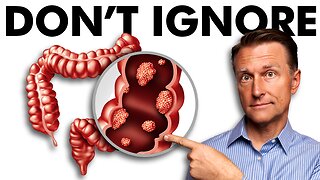 7:02
7:02
Dr. Eric Berg
3 months agoThe Early Signs of Colon Cancer You DON'T Want to Ignore
11.4K7 -
 2:15
2:15
Natural Cures
9 months ago $0.05 earnedNever Ignore These Signs of Colon Cancer
403 -
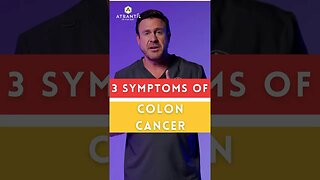 0:45
0:45
GCP Shorts (Gut Check Project)
8 months agoColon Cancer Symptoms
4 -
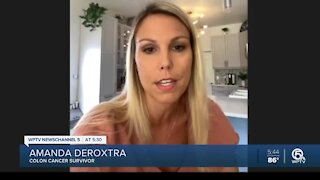 2:02
2:02
WPTV
3 years agoActor Chadwick Boseman's death raises awareness of colon cancer
267 -
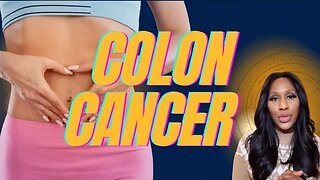 3:58
3:58
Physician, Health Expert
1 year agoWhat Are the Warning Signs of Colon Cancer? When Should You Be Screened for Colon Cancer?
8 -
 31:45
31:45
Dr. Eric Berg
1 year agoFrom Stage 3 Colon Cancer to NO Cancer Detected in 4 Months
4.59K8 -
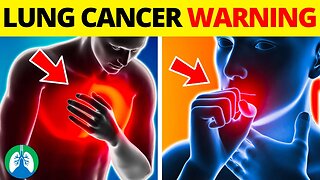 8:18
8:18
Respiratory Therapy Zone
1 year agoTop 10 Early Warning Signs of Lung Cancer to Look For ⚠️
185 -
 2:54
2:54
WEWS
3 years agoChadwick Boseman's death puts spotlight on colorectal cancer and trend that has doctors concerned
27